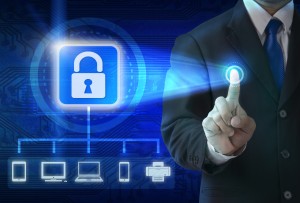 Remember when you created your first AOL account and you could use your real name (without a slew of numbers behind it) and create a simple password that was a mere four or five characters longs? Nowadays, you’re John_Smith260548 and your password is some crazy combination of letters and numbers you can’t possibly remember.
Remember when you created your first AOL account and you could use your real name (without a slew of numbers behind it) and create a simple password that was a mere four or five characters longs? Nowadays, you’re John_Smith260548 and your password is some crazy combination of letters and numbers you can’t possibly remember.
This is all for your own protection, of course. Not only do we have to contend with data breaches on massive scales, but if your passwords aren’t secure, you can look forward to diligent hackers slicing through your defenses like tissue paper and stealing your sensitive personal data in the process.
In other words, you need to be your own best advocate by creating passwords strong enough to protect your online accounts, including your email, any clubs you join, and e-commerce sites that save data such as your credit card number. Plus, it hardly needs to be said that you’d be in real trouble if hackers accessed any accounts containing your social security number.
So how can you create a password that’s hack-proof? Such a thing may not exist, but you can definitely make secure passwords that will have would-be hackers heading for greener pastures, so to speak. Here are some tips to get you started.
1. Number and Type of Characters
The standard number of characters recommended for secure passwords is a minimum of eight, although some forward-thinking websites are starting to demand twelve. You password should also include different types of characters.
These characters may be uppercase letters, lowercase letters, numbers, and symbols and/or spaces. The best passwords will employ a combination of all of these elements. In addition, you should try not to use recognizable words at all, opting instead for a random combination that cannot be guessed once a few of the letters are revealed.
Such passwords may be more difficult to remember than your passwords of old, but if you’re keen to keep hackers out of your accounts, this is the best way.
2. Avoid Personal Data
We get it – you want to create a password that has some kind of personal meaning to make it easier to remember. However, this is a mistake that hackers will find ways to exploit.
Think about how much information about your private life is available on the internet, especially via social media. All you have to do is tweet about your dog or post a photo that shows your street sign and you’ve potentially given hackers a substantial part of common passwords.
Don’t use your name, nicknames, street names, pet names, dates like birthdays or anniversaries, or any other personal information that hackers could glean with a little digging online.
What you can use to help you remember a seemingly random assortment of characters is an anagram. Make up a sentence you can remember that includes letters, numbers, and symbols and then turn it into an acronym by using only the first letter of every word. “My first dog was Fido! He died at 13 in January of 2002” could become MfdwF!_Hda13in0102, just for example.
In this way you can create incredibly secure passwords that you’ll actually be able to remember when you login.
3. Different Passwords for Every Account
This can be a hard sell considering the dozens of accounts that most people use frequently, not to mention the handful used daily. However, there is a solution.
With a password manager you can enter all the passwords for your various accounts and all you have to do is remember the password that logs you into the password manager. Just make sure that password is really secure.
4. Never Repeat Passwords
Many websites will prompt you to change passwords periodically. When this happens, resist the urge to repurpose old passwords.
Once you’ve used a password, don’t recycle it. Create a new one every time for the best chances to avoid redundancy and the potential for hacking.
5. No Sharing
This should go without saying, but considering how many people make the mistake of sharing their ATM pins, it’s not really that surprising that passwords get shared with spouses, friends, and other seemingly trustworthy parties. Do not fall into this obvious trap!
The most secure password is absolutely useless if you share it with someone else. Not only could that person access your account, but they might not be as diligent as you at protecting it, potentially letting your private information fall into the hands of others willing to exploit it.
It’s one thing to trust your partner, your family members, or your friends, but the security of your online accounts relies on secrecy. You might trust your loved ones to keep this secret – the problem is if you can’t keep it.
